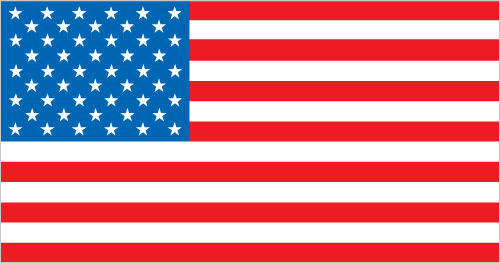The Igbo Studies Association held its 16th Annual International Conference and Meeting between May 10 and 12 at the Dominican University, River Forest, Illinois, USA.
According to a statement made available to us by the public relations officer of the association, Chijioke Azuawusiefe, the three-day event of intellectual abundance and social exchanges, themed “Igbo Ga-adi: Projecting Igbo Values and Customs,” interrogated the question of negotiating Igbo identity and existence in a globalized world increasingly impacted by new media technologies and social media.
The conference explored “qualities [that] help the Igbo people to endure travails and tribulations and survive, again and again,” said ISA President, Professor Ada Uzoamaka Azodo in her welcome remarks. The Igbo persevere through “circumspection, meaning, looking critically at options before action, and even in acting avoiding extremism,” said the professor of French and American Studies at Indiana University Northwest, Gary, Indiana, USA.
Eminent poet and literary scholar, Professor Chimalum Nwankwo, gave the Ihechukwu Madubuike Annual Keynote Lecture titled: “Retrospectives and Projections: Igbo Cosmogony and Sustaining Epistemologies for the Future”.
Nwankwo extolled the Igbo resilience, industry, and ability to negotiate new identities on novel frontiers. “Ndigbo must pay attention to how [their] world intersects with those of other peoples and their ontologies,” said the professor of literature and English.
Rising to President Azodo’s and Professor Nwankwo’s invitations, participants discussed the state of Ndi Igbo vis-à-vis their culture, customs, language, religions, epistemologies, gender relations as well as their security, development, politics, economics, and interactions in today’s Nigeria and the world.
Coming from diverse disciplines – like history, literature, linguistics, media and communication, African studies, and religious studies – participants presented high quality new research on their scholarly, pedagogical, creative, archival, political, and customary practices around Igbo studies.
The university academics, independent scholars, students, educators, entrepreneurs, and nonprofit organizers from Nigeria, the United States, and Canada, delivered dozens of papers, workshops, roundtable panels and discussions as well as displayed an array of art exhibitions, book and clothes sales, music, and dance performances.
ISA this year signed a memorandum of understanding with Dominican University to quarter the association’s secretariat on its campus. At the opening plenary session, University President Donna M. Carroll, Dean Chad Rohman, and Provost Jeffrey Carlson welcomed participants and attendees to ISA’s host institution. During the closing ceremony, representatives of the Igbo Community in Chicago, led by Friday Nwokoma, presented kola nut to the gathering.
During the association’s annual general meeting, the following members were elected to the ISA Executive Management Team: Ada U. Azodo (president; re-elected to a second term), Ijeoma Nwajiaku (vice president), Uchenna Onuzulike (secretary), Bellarmine Ezumah (treasurer), Chijioke Azuawusiefe (public relations officer), and Chidi Igwe (program chair/conference convener for 2019).
The 17th Igbo Studies Association International Annual Conference and Meeting, with the theme, “Aku Ruo Ulo: …, will hold at the Dominican University, River Forest, Illinois, USA, Thursday, May 9 to Saturday, May 11, 2019.
At the end of the conference, ISA noted that what Ndi Igbo do to themselves should be considered as important and/or damaging as what other people do to Ndi Igbo and Ohaneze should look more inward rather than outside for solutions to the challenges facing Ndi Igbo.
It also stated that the selfishness of Igbo politicians/leaders who care more about their pockets than about Ndi Igbo as a collective is abhorrent and the Biafra question remains unresolved and very much alive; agitators for Biafra represent a contained Igbo angst exploding within the Nigerian space.
It further lamented that Igboland is under siege as an occupied territory, given the residue of the 2017 “Python Dance” military exercise and military-manned checkpoints in the East and calls for the Igbo living in the North to return to the East are almost meaningless since Igboland is currently under occupation.
It further reiterated on the need for the people to promote the Igbo language as it is a very important aspect of culture.
It said: “Death of the Igbo language is synonymous with the death of Igbo culture, values and identity. Loss of values and identity is a reality among the Igbo today because they have neglected their language, a repository of a people’s values and identity.
“Perception of Igbo language by the second generation of Igbo: What do we do to ensure that the language endures?
“Igbo culture and language should be made accessible to younger generations of Ndi Igbo both at home and in diaspora. Academics should explore ways of collaborating with creators of contemporary popular culture to construct overarching narratives and mythologies that will keep telling the Igbo story.
“There is need for the Igbo to look homeward and to vigorously invest more at home instead of investing only outside of Igboland.”
The association called on all Igbos to use the social media in disseminating the Igbo culture and Ndi Igbo should be mindful of “empty religiosity and brands of religious practices that seek the destruction of primal religious sacred spaces”.
The Eagle Online reports that the Igbo Studies Association is an international academic organization founded in Philadelphia, Pennsylvania, USA, in 1999 to promote and encourage research and scholarship on Igbo history, culture, language, arts, science, technology, and social movements, among others. It is headquartered at the Dominican University, River Forest, Illinois, USA.

